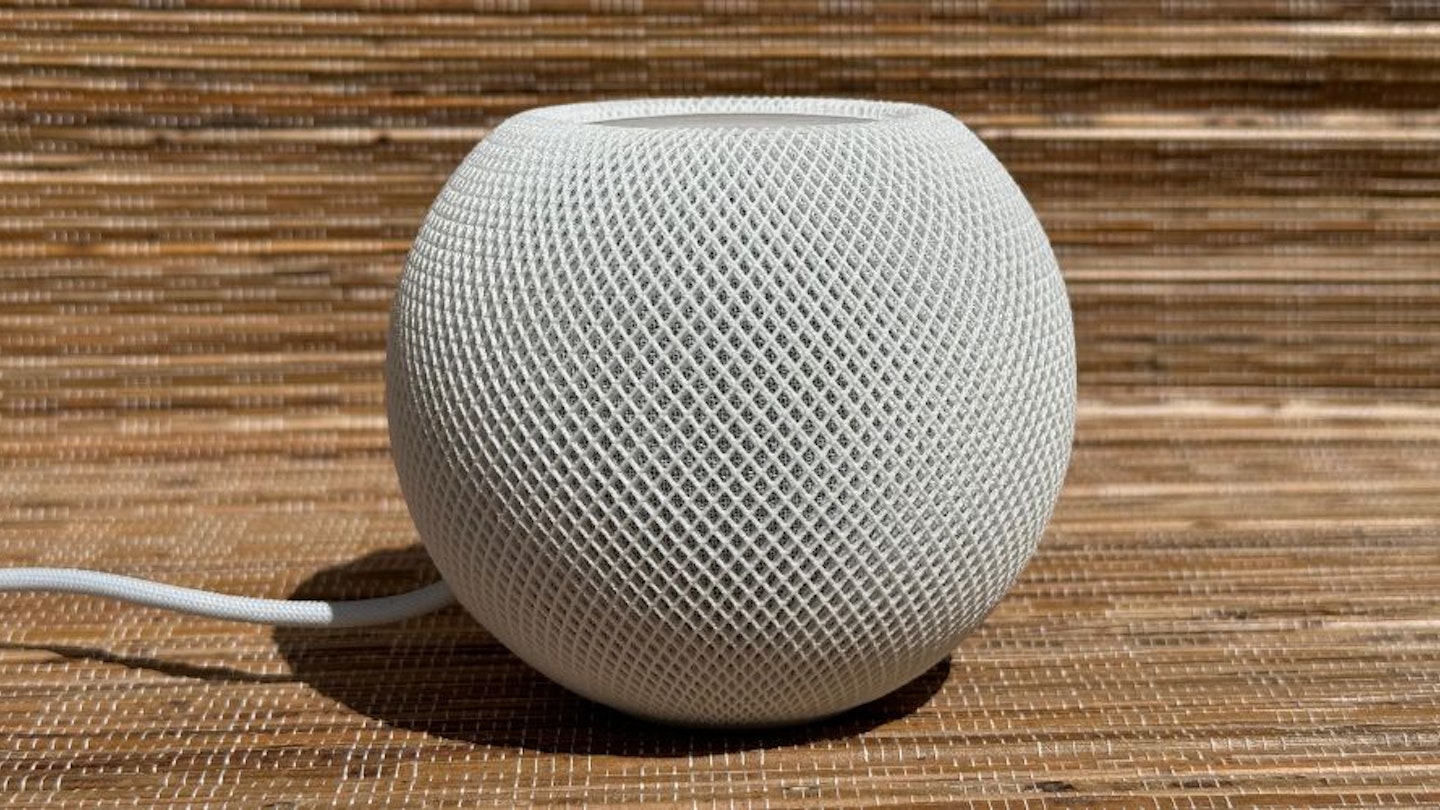When searching for the best speakers of 2024, one of the most popular types in recent years has been smart speakers, which are voice-activated devices integrated with virtual assistants such as Alexa, Google Assistant, and Siri (as with the HomePod Mini). Their main appeal is in the ability to perform tasks for you. Amazon's Alexa range currently dominates the voice assistant market due to its comprehensive features and affordable price point; they are also often integrated with other brands' smart speakers, such as the popular Sonos range. Apple entered the game in 2018 with their HomePod, followed by the Mini in late 2020 and HomePod 2 in 2022. There are rumours of a second-generation HomePod Mini on the horizon. Whether it will be released this year is the question. But for now, the Apple HomePod Mini stands out for its sleek design, supreme sound quality and seamless integration.
Pros
- Seamless Bluetooth streaming with the Apple Beam feature
- Superior sound quality compared to competitors in the same price range
- Excellent integration for existing Apple users with HomeKit
Cons
- Compatibility and voice assistance are weaker than competitors
| Dimensions | 840 x 970 x 970 mm |
| Weight | 0.35kg |
| Connections | Wi-Fi, Apple AirPlay 2 |
| Battery Life | N/A (AC-powered) |
| Waterproofing | No |
| Available Colours | White – Yellow – Orange – Blue – Space Grey |
| Additional Features | Spatial Audio, Apple Beam, Siri |
Design and build
The HomePod Mini is a small and stylish smart speaker with some brilliant features despite lacking a functional display. At three inches tall, the device is sleek, spherical, and covered in acoustically transparent woven cloth. Its circular top panel, which activates when using Siri, features impressive animations.
With five colours available – space grey, blue, yellow, white, and orange – we recommend the white HomePod Mini simply because it is significantly less prone to fingerprints. Should this not bother you, the yellow and orange are quite striking in a home environment and will add a pop of colour to your living space. However, the HomePod Mini is not portable; instead, it needs to be plugged into a power outlet. Designed for indoor use, it is also not water-resistant.
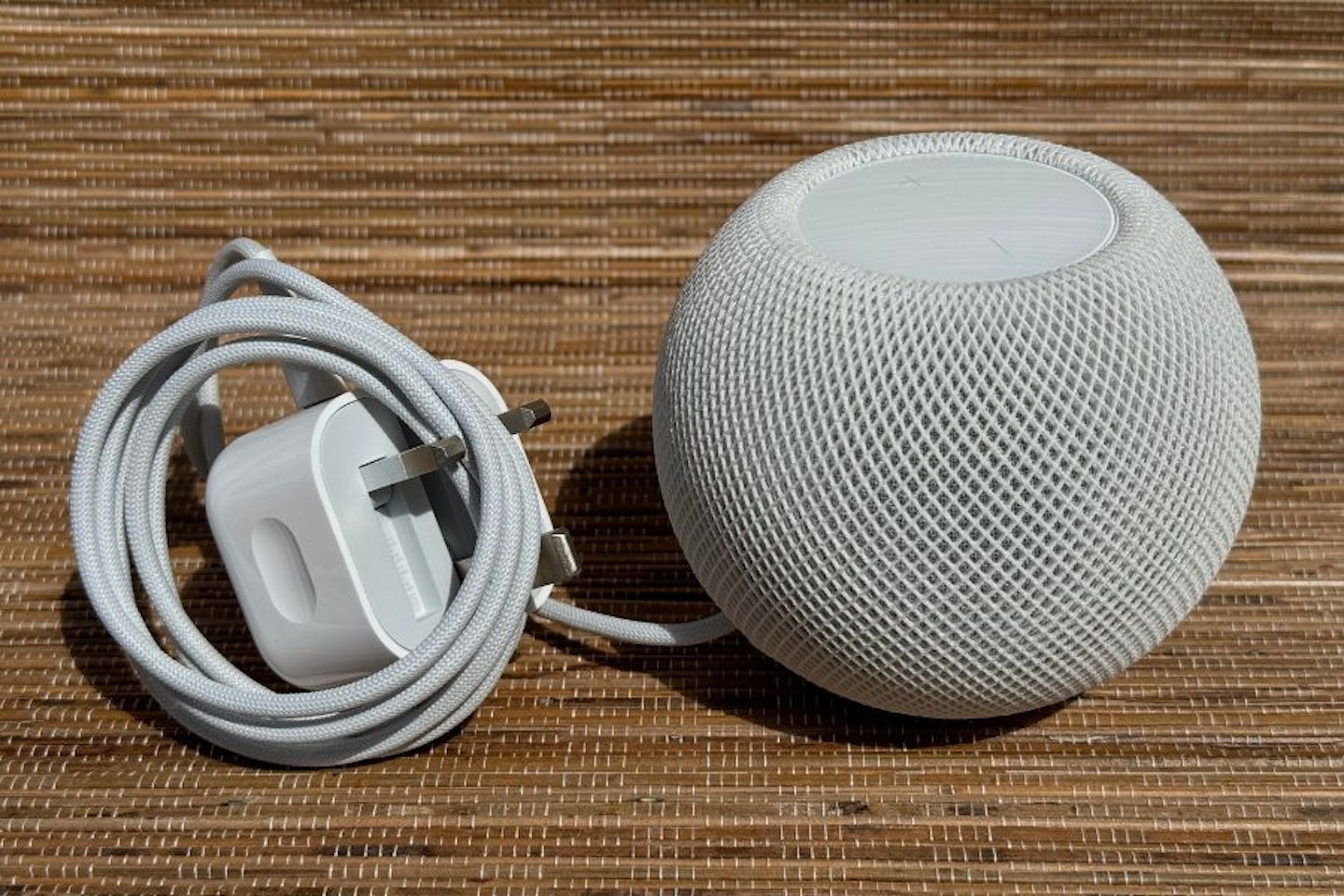
Power cable
In contrast to the original HomePod, the power cable now ends in a USB-C connection and matches the device's colour, while the AC adapter remains white. This may be a minor concern for some, especially if they opt for a different-coloured HomePod.
Power brick
The size of the power brick can be a bit cumbersome when working with smaller spaces – behind a bedside table, for example. However, the now detachable power brick perhaps unintentionally allows it to be used with other USB-C-compatible devices, which is convenient should you find yourself without your iPhone's power brick when on low charge.
Compatibility
One of the main reasons these speakers first became and continue to be popular in the smart market, is that they provide people with a compact, affordable entry point into turning their homes smart. And of all the speakers on the market, a Siri-enabled speaker should, in theory, be the ideal place to start, should it not? Well, among the most popular smart speaker brands – Alexa and Google, among others – the quality of your experience with a HomePod Mini depends entirely on how many Apple services you have opted into or regularly use. In other words, the more Apple services, the better.
Let’s say you only have an iPhone. Setting up a HomePod Mini allows you to talk to Siri while away from your iPhone and use features such as timers, receiving texts, and starting phone calls when your iPhone is on the same Wi-Fi network. However, the simple yet game-changing addition of Apple Music makes the HomePod Mini significantly more useful, allowing you to ask Siri for songs, playlists, and more.
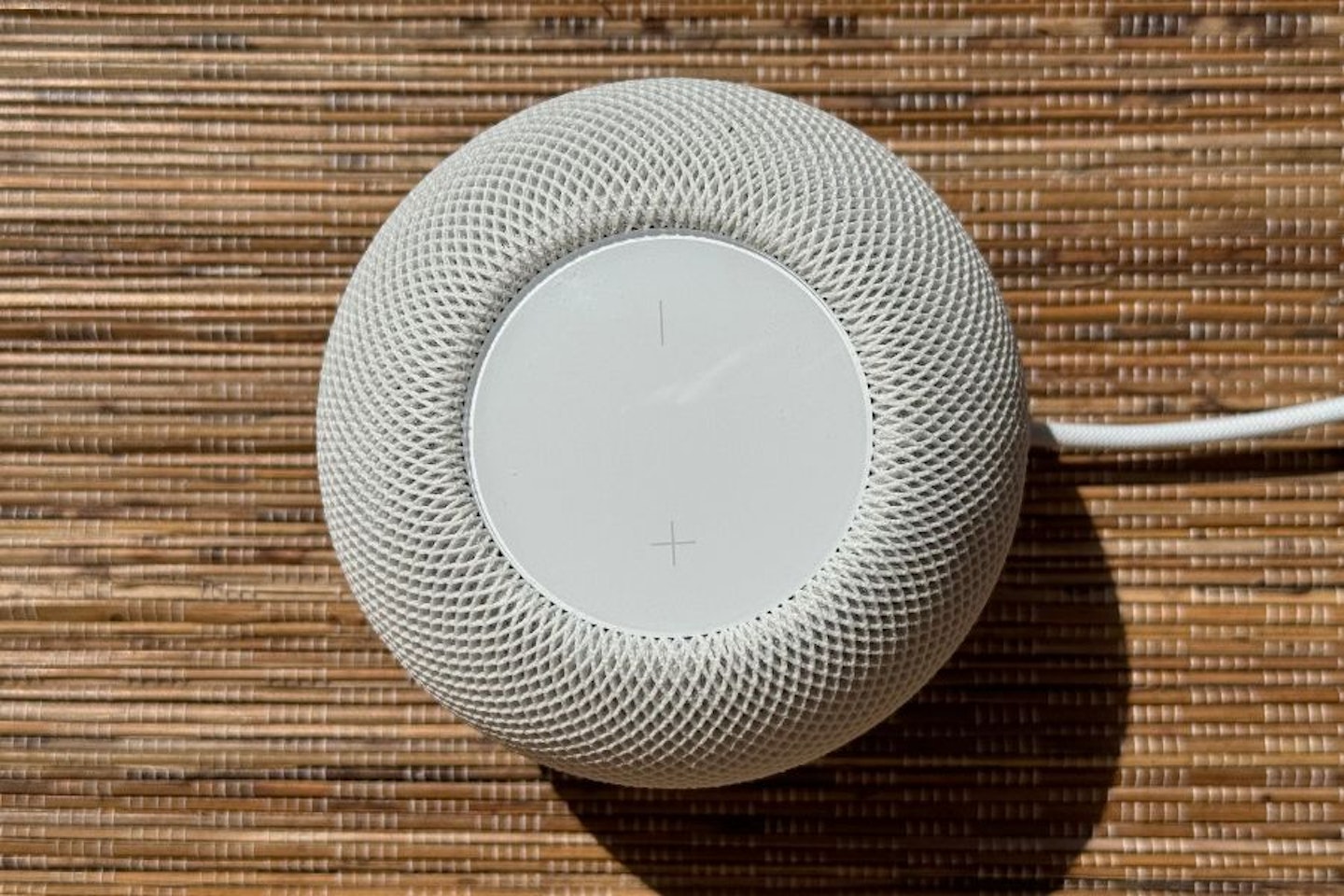
Apple beam
The U1 and above chip in the newer iPhone models introduce a remarkable "beam" feature, which offers a seamless iPhone-to-HomePod connection. Tap your iPhone to the HomePod, either on the front or back, and it instantly beams the music you're playing on your iPhone to the speaker (so long as you have a stable Wi-Fi connection). Similarly, when the speaker is playing music, touch your devices together, and you can transfer the music back to your phone, making it a breeze to control.
It may take a few tries to get the hang of, but after using it for a few weeks, the U1 chip's beam feature stands out above the rest. When I come back from a run and want to switch from my Apple AirPods to the speaker, I instinctively tap my iPhone on my kitchen HomePod to keep listening to my music or podcast while I pour myself a cold glass of water. It's become as routine as my pre and post-run workouts, allowing me to instantly transfer the music from my AirPods to the HomePod Mini. And, coming from a Sonos range background, I'm now missing the HomePod Mini's effortless simplicity more than I expected when using my usual Sonos speakers.
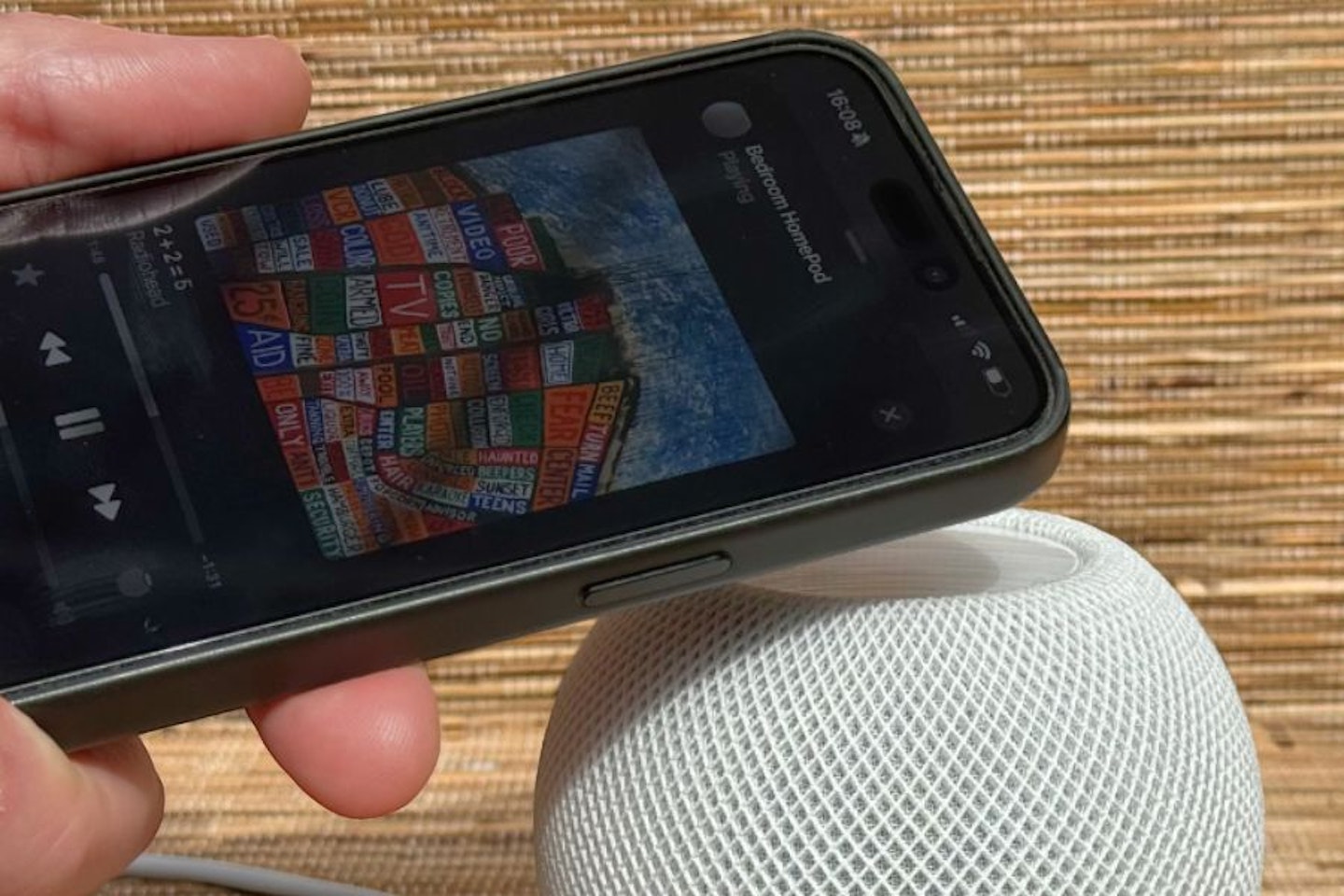
Sound quality
When it comes to sound quality, the HomePod Mini stands significantly above other speakers in its category. Despite its small size, it delivers impressive audio performance, featuring a surprising amount of balanced bass and clarity across all volume levels. In contrast, other compact speakers, such as the Google Home Mini and Alexa Dot, fall short when pushed to higher volumes. Additionally, with a full-range driver and dual passive radiators, the HomePod Mini offers omnidirectional sound, ensuring consistent audio quality from any location within a room, a feature absent in many alternative products from Google and Amazon.
The HomePod Mini features Apple's S5 chip, which analyses music 180 times per second and applies sophisticated tuning algorithms to enhance its sound output. This ensures excellent sound quality for its size and price, handling various musical genres well, though it may have slight limitations with more complex classical pieces.
What's more, you can set up a stereo pair of HomePod Minis for immersive, room-filling sound – perfect for those who want high-quality, compact audio solutions or build their own affordable at-home surround sound. Stereo pairing enhances the overall performance and spatial audio, especially with Apple TV 4K.
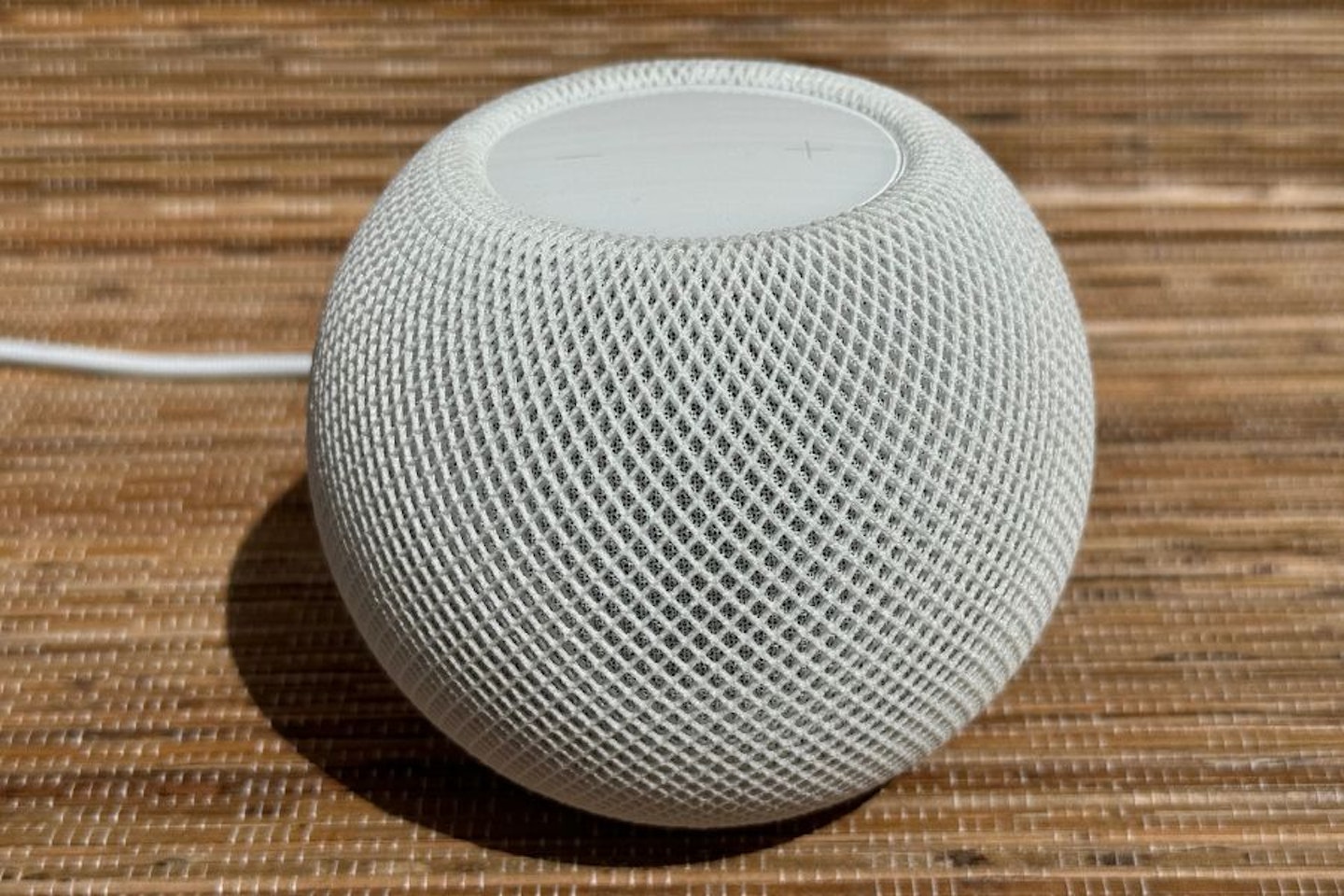
Multiroom
Thanks to the iPhone's seamless integration, syncing audio across multiple speakers is a breeze, making the HomePod Mini one of the best multiroom speakers available. You can effortlessly create a stereo pair or sync playback across all available speakers using Apple Music. This feature also extends to Apple Podcasts, allowing you to seamlessly continue podcast playback using Siri or HomePod. Additionally, when integrated with Apple TV, you can use one or a pair of HomePod Minis for high-quality Dolby Atmos sound. Siri's comprehensive integration across various Apple devices offers a wide range of functionalities, including obtaining directions, creating notes, and accessing calendar events.
Moreover, the Intercom feature allows you to broadcast messages simultaneously to all connected Apple devices within a household. The interconnectedness of various Apple products and services contributes to a more comprehensive and streamlined user experience.
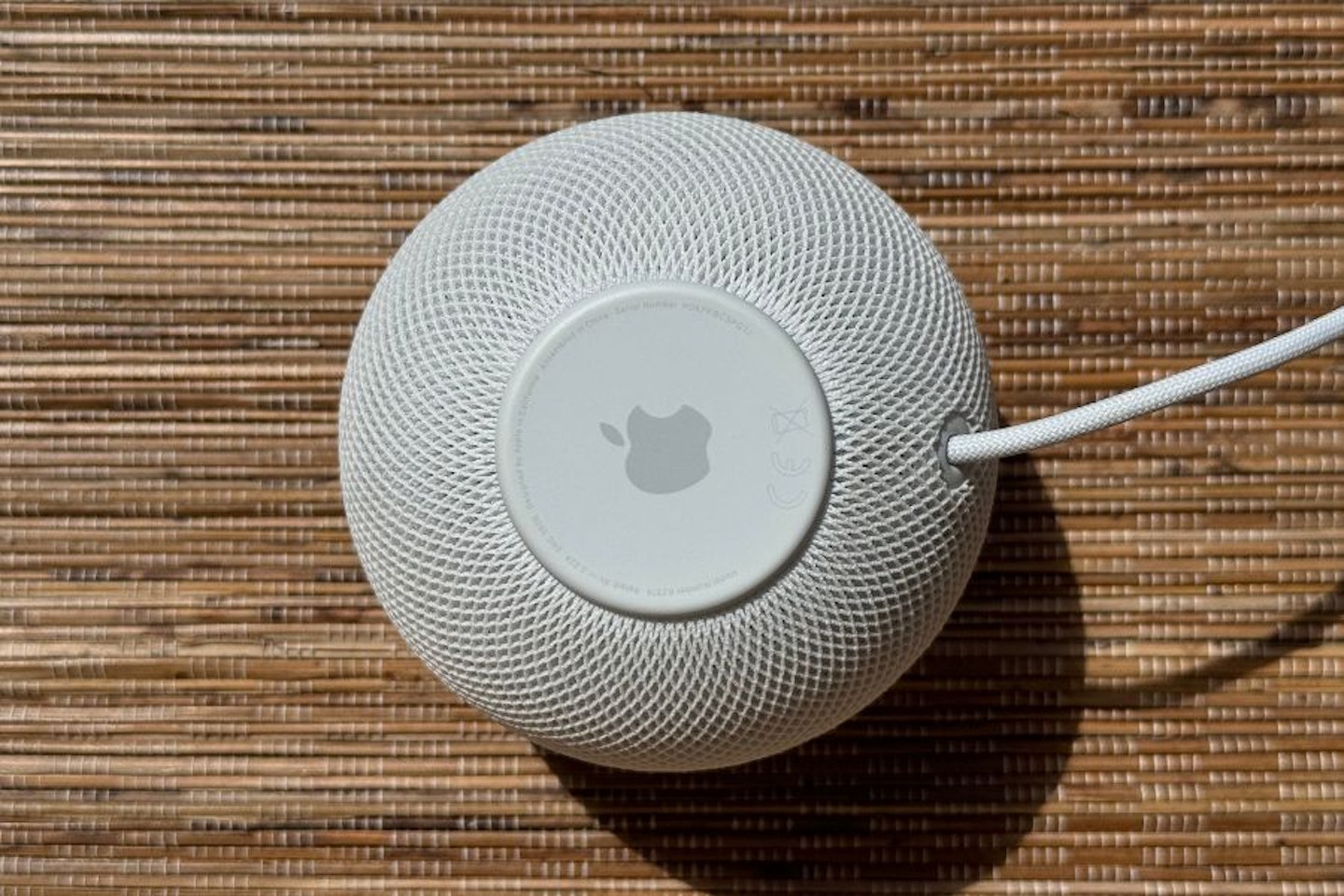
Price and competition
However, when considering the broader smart home ecosystem, it's important to note that alternative platforms such as Amazon's Alexa and Google Home offer a wider array of compatible devices and features. Amazon's Alexa, for instance, boasts numerous skills and extensive smart home device compatibility, while Google Home offers a well-established smart home ecosystem as well as a more naturalistic tone of voice. In comparison, Apple's HomeKit ecosystem currently lags behind in overall compatibility with third-party smart home devices.
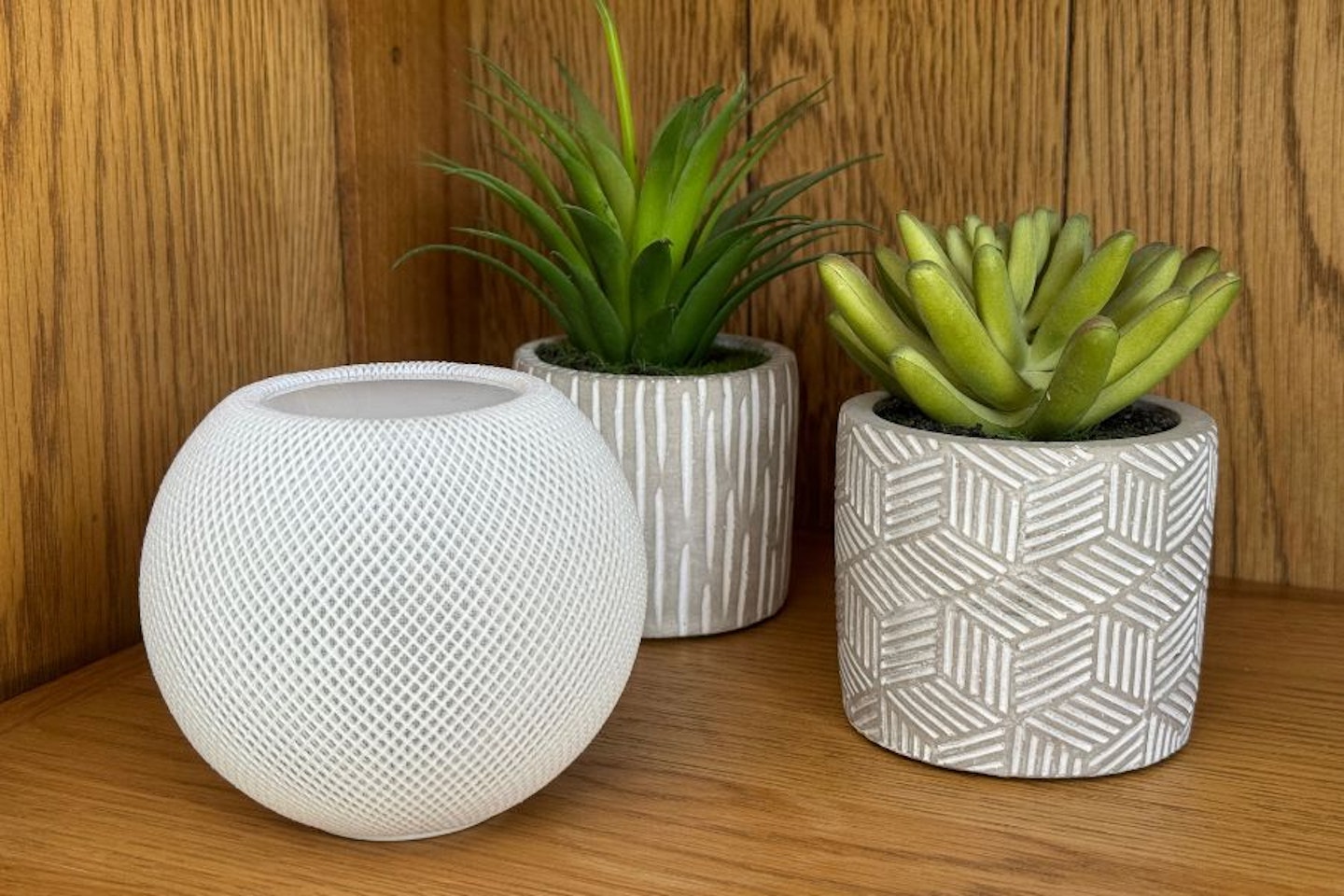
Final thoughts
So, is the HomePod Mini a sound investment? Well, an effective approach would be to acquire three or more and distribute them across your home as an initial setup. However, in terms of affordability, other options such as Amazon's Alexa Dot, available at a similar or lower price point, may be more appealing. Alternatively, investing in a more expensive Amazon system would offer superior compatibility with a broader range of smart home devices than the HomePod Mini. Moreover, for those seeking a more reliable virtual assistant, alternatives like Google or Amazon may provide a better-than-Siri solution. However, for those seeking a seamless integration within the Apple ecosystem and sound quality that sits above the rest, the HomePod Mini is the best choice for you.
More items to consider
2.
Sonos Roam 2
The Sonos Roam 2 is a compact and durable speaker designed for summer adventures. It delivers impressive sound quality with powerful bass and an expansive soundscape. The user-friendly Sonos EQ app allows for sound customization, making it a great choice for audiophiles. With Bluetooth 5.0, Apple Airplay 2, and Wi-Fi connectivity, as well as a 10-hour battery life, it's a convenient option for on-the-go music lovers. The voice assistant feature adds to its convenience, although it may exhibit slight audio precision and clarity issues at higher volumes.
Pros
- Incredible bass for size
- Well-thought out, IP67-rated design
- Effortless portability for any on-the-go use
Cons
- Slightly hollow bass at especially high volumes
| Dimensions | 168 x 62 x 60 mm |
| Weight | 0.48kg |
| Connections | Bluetooth 5.0, Wi-Fi, Apple AirPlay 2 |
| Battery Life | 10 hours |
| Waterproofing | IP67 |
| Available Colours | Black – White – Red – Blue – Green |
| Additional Features | Multi-speaker connectivity, Alexa and Google Assistant compatible |
Amazon's Echo Dot is a great, more affordable alternative to the Echo, with excellent multiroom speaker capabilities. It's easy to set up and delivers a surprisingly punchy sound. Like the Echo, Alexa provides weather and news updates, hands-free timers, and answers to questions. The Dot can also help you create at-home cinema audio at a more affordable price than Apple's HomePod Mini but with slightly less impressive sound quality. If you're looking for a more affordable Echo device, the recently released Pop offers a lower price, but sacrifices sound quality and range.
Pros
- Easy to set up and pair with other devices
- Good volume and impressive bass for price
- Great, reliable voice assistance
Cons
- App support is as good nor seamless as Apple
| Dimensions | 100 x 100 x 89 mm |
| Weight | 0.34kg |
| Connections | Wi-Fi, Bluetooth |
| Battery Life | N/A (AC-powered) |
| Waterproofing | No |
| Available Colours | Charcoal – Deep Sea Blue – Glacier White |
| Additional Features | Smart home device compatible, Microphone Off button |
The Google Nest Audio is a pebble-coloured fabric cuboid made from 70% recycled plastic with minimal branding. It has touch-sensitive controls for playback and volume on the top surface and a voice switch on the back. Setting it up with the Google Home app is easy and compatible with various music platforms. The device offers a 75% increase in volume and a 50% improvement in bass compared to the 2016 Google Home. While it's excellent for providing smart assistance and background ambience, pushing the volume can lead to harshness in the treble. Sticking to the device's default EQ settings is recommended due to sound delivery limitations.
Pros
- Accurate, natural-sounding voice assistance
- Sleek build blends seamlessly into any space
- Wide service support with built-in Chromecast
Cons
- Underwhelming audio performance
| Dimensions | 175 x 124 x 78 mm |
| Weight | 1.2kg |
| Connections | Wi-Fi, Bluetooth 5.0 |
| Battery Life | N/A (AC-powered) |
| Waterproofing | No |
| Available Colours | Charcoal – Chalk – Sand – Sage – Sky |
| Additional Features | Google Assistant, Chromecast |
Who tested it?
Harvey Isitt is a Tech Writer and Reviewer at What's the Best. He has a deep passion for music, with an extensive record collection, a home audio system, and a love for live concerts and festivals. Harvey also has extensive experience reviewing speakers and is a dedicated Apple user, making him an ideal candidate to review the HomePod Mini.
How we tested it
I tested the product over several weeks, primarily using the speaker in my office throughout the day to boost productivity and in the kitchen while I cooked. I listened to various music genres, from laid-back soul and electronic to more lively rock and hip-hop, to get a good sense of the speaker's performance. I even cranked up some dance music at exceptionally high volumes. I tested the accuracy of its spoken word reproduction with audiobooks and podcasts, such as Malcolm Gladwell's Revisionist History and Steven Bartlett's Diary of a CEO. Additionally, I used it as an upgrade from my smartphone's speakers while watching YouTube on my iPhone and MacBook's speakers while watching a few films.
How What's The Best test products
Struggling to navigate the audio world? We provide unbiased reviews for real listeners.
At What's The Best, we ditch the technical jargon and deliver sound reviews for sound people. Our team of audio enthusiasts puts everyday speakers, headphones, and more through their paces in real-world listening scenarios. We don't waste your time with staged tests – we focus on how these products actually perform for everyday music lovers.
The result? Unbiased buying advice you can trust. We only review the most relevant and impactful audio products on the market, so you know you're getting the latest insights. Can't find a review for your specific gear? We're constantly expanding our review database, so stay tuned!
Want to dive deeper into how we test audio products? Visit our dedicated page detailing how we go about performing our audio reviews.
Harvey Isitt is a Tech Writer and Reviewer for What's the Best. Harvey writes reviews, buyers and how-to guides, and listicles on a broad range of topics.
Besides writing, Harvey is an avid camera, turntable, and speaker enthusiast with a somewhat unhealthy obsession with movies. He is also a keen runner, cyclist, hiker, and swimmer.
Subscribe to the What's The Best Newsletter to keep up to date with more of the latest reviews and recommendations from the What's The Best team.
